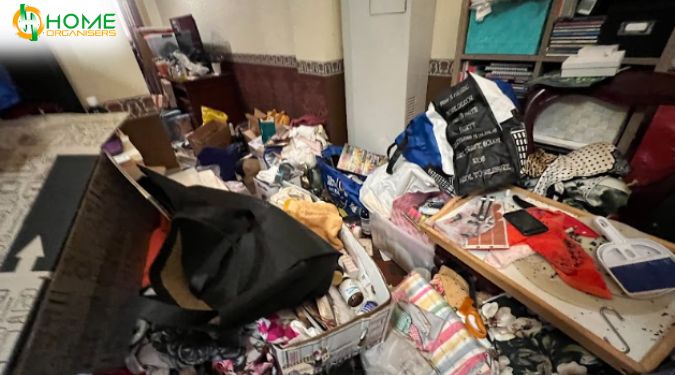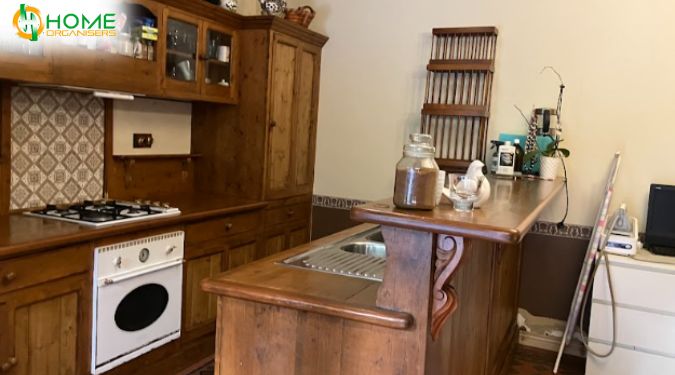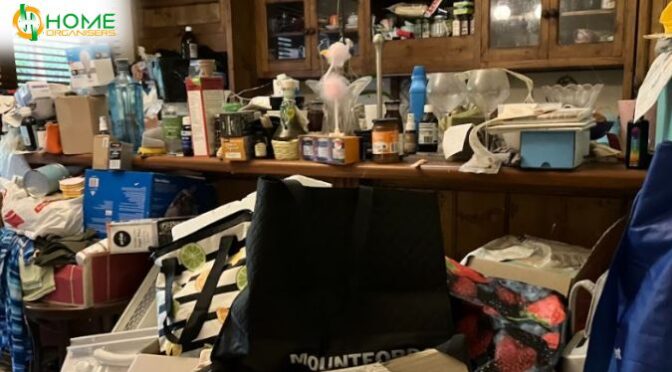Life can feel out of control when you’re going through a difficult time—whether it’s due to illness, relationship breakdown, family violence, job loss, or just feeling completely overwhelmed. In these moments, even everyday tasks like tidying up, cooking, or finding your keys can feel impossible. The home, which should feel like a safe place, can instead feel like another source of stress.
But here’s something powerful to remember: when life feels like it’s falling apart, one of the first and most effective ways to start putting things back together is by creating a clean, safe, and organised home.
This blog explores how transforming your space can also transform your life—physically, mentally, emotionally, and even financially.
Mental and Emotional Clarity
When your environment is cluttered, your mind often feels cluttered too. It becomes harder to focus, make decisions, or feel calm. Studies show that people who live in messy environments are more likely to feel anxious and depressed.
By tidying up your space, you feel more in control. You know where things are. You can breathe easier. You’re not constantly distracted or frustrated by mess. Your brain gets a break—and that’s when healing begins.
Clearing physical clutter helps to clear mental clutter. For many, this process becomes the foundation of hoarding recovery and emotional regulation.
A Safe Space Builds Trust and Confidence
For those recovering from trauma—especially after domestic violence or major health setbacks, feeling safe at home is the first step to regaining confidence. A well-organised space with clear zones for sleeping, eating, and relaxing helps your body and mind settle into healthy routines.
Post-trauma home cleaning plays a critical role in restoring emotional security. It’s not just about cleanliness—it’s about transforming an environment that once felt unsafe into one that offers peace and structure.
Safety isn’t just about locks and alarms. It’s also about feeling emotionally protected. Knowing that you can come home and not be overwhelmed by mess or memories is a quiet, yet powerful, way to rebuild trust in your surroundings—and yourself.

Better Physical Health
Dust, mould, and clutter aren’t just annoying—they can harm your health. Dust mites and allergens can cause breathing problems. Stacks of papers or items on the floor can become tripping hazards. Mould in damp areas can worsen asthma and other conditions.
When your home is clean and well-maintained, it becomes a healthier place to live. You sleep better. You breathe easier. You feel more motivated to cook healthy meals or go for a walk. It’s not just about how it looks—it’s about how it helps your body function better daily.
A safe and accessible home is essential for people with disabilities or chronic conditions. NDIS safety goals often include organised, clutter-free spaces to reduce risks and promote independence.
Boosting Your Mood and Energy
Have you ever noticed how good walking into a freshly cleaned room feels? That lightness you feel isn’t in your head—it’s backed by science. A tidy, pleasant environment can increase your serotonin (the feel-good hormone) and reduce your cortisol (the stress hormone).
When your space is lighter and more open, your mood lifts. You might feel more energetic, motivated, and ready to take on the day.
That’s not magic—it’s simply the power of your environment supporting your well-being.
Supporting Family Relationships
Chaos at home often leads to tension between family members. Disagreements over lost items, undone chores, or crowded spaces can easily become more significant arguments.
On the other hand, a clean and organised space allows everyone to relax and enjoy each other’s company. Children thrive in environments where there’s order and routine, and adults are more likely to feel at ease when they’re not constantly reminded of unfinished tasks.
Organising the home helps reduce arguments and encourages teamwork, respect, and peace, especially during stressful periods.
Improving Productivity and Motivation
When your home is in order, it’s easier to focus. Whether you’re trying to work from home, support your children with schoolwork, or apply for jobs, having a clean space supports clearer thinking and better results.
Clutter complicates everything. You spend more time looking for things and waste mental energy making decisions about what to do next. An organised home removes that friction, helping you finish more quickly.
Even better, achieving small wins at home—like organising one drawer or tidying one room—gives you momentum. Suddenly, other tasks feel more manageable too.
Saving Time and Money
A cluttered home often leads to lost items and last-minute purchases. How often have you repurchased something because you couldn’t find the original? Or ordered takeaway because the kitchen was too chaotic to cook?
Being organised helps you save money by reducing waste, avoiding double purchases, and using what you already have better.
It also saves time, one of your most precious resources. When your home is set up to work with you, not against you, you free up hours each week to spend on what matters most: your family, your health, and your goals.

Encouraging Positive Habits
An organised home supports healthy routines, such as regular mealtimes, better sleep, daily exercise, mindfulness, and more. It also helps you build structure into your day, which is especially helpful when recovering from depression, anxiety, or trauma.
When your environment is calm and reliable, your brain mirrors that calm. You’re more likely to stick with good habits and drop bad ones. In this way, your home becomes your silent supporter, nudging you toward the life you want to live.
Rebuilding Dignity and Self-Worth
Walking into a home that feels good gives you a deep sense of dignity. When your space reflects order, care, and beauty, you start to see yourself differently, too.
This is especially important for people who have felt powerless or ashamed. Organising isn’t just about “stuff”—it’s about reclaiming control and proving to yourself that you are worth the effort. Every shelf you clear or space you reclaim is a statement: “I deserve peace. I deserve comfort. I’m moving forward.”
A Fresh Start, One Step at a Time
Recovery is never one big leap—it’s lots of small steps. Organising your home is one of those steps. It doesn’t have to be done all at once. You can start with a single drawer, a small cupboard, or one corner of a room.
The key is consistency and kindness to your space and yourself.
If you’re feeling overwhelmed, it’s okay to ask for help. Support can make a big difference, whether it’s from a friend, a family member, or a professional home organiser. The goal isn’t perfection; the goal is progress.
In Summary
Your home can be a powerful ally from risk to recovery. A clean, safe, and organised space supports your health, mind, relationships, and goals. It helps you feel calmer, think more clearly, and regain control of your life.
Whether you’re focusing on hoarding recovery, starting fresh with post-trauma home cleaning, or working toward your NDIS safety goals, your home environment matters.
When life feels heavy, start with your space. Because when your home feels better, so do you.
Need help creating a safe, organised space you can thrive in? Call us on 03 8583 9103, email nancy@homeorganisers.com.au, or visit homeorganisers.com.au to get started today.



